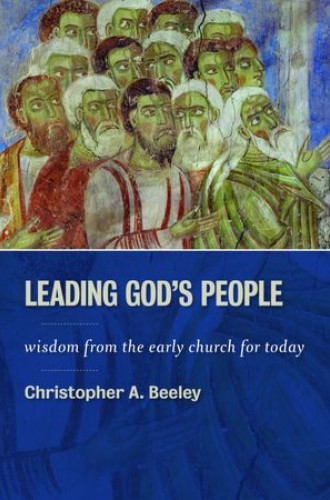Leading God’s People, by Christopher A. Beeley
There may have been a time when being a pastor was a low-stress, high-status job, but no more. In these days of high-stress, low-status pastoring, clergy need reminders from leaders of the early church about the core purpose of their work, and about its importance and its essential dignity and meaning. Christopher Beeley, an Episcopal priest and a teacher of patristics at Yale Divinity School, draws on the works of early leaders to deliver just such a reminder.
Many recent books on pastoral leadership are how-to guides that focus on techniques and strategies. Leading God’s People is not that kind of book. Beeley is concerned with the ends, rather than the means, of pastoral leadership. He contends that “the main purpose of pastoral ministry is to guide people toward God in Christ by the power of the Holy Spirit.” Therefore, “Everything we do as leaders should reflect this purpose.” Pastoral leaders can easily forget what is most basic and essential amid the manifold pressures of a society and church driven by a consumer ethos and its definitions of success. Through numerical results may provide some important clues about how a congregation is faring, Beeley reminds us that “the spiritual condition of the flock is the only real measure of a leader’s success.”
Leading God’s People is refreshingly different from many current books on leadership in that it is not concerned with what is the newest or most culturally relevant. Beeley looks all the way back to such teachers and theologians as Augustine, Chrysostom, John Cassian, Gregory Nazianzen and Gregory the Great. And he incorporates the voices of several women who were leaders in the early church, including Amma Sarah and Amma Syncletica.





